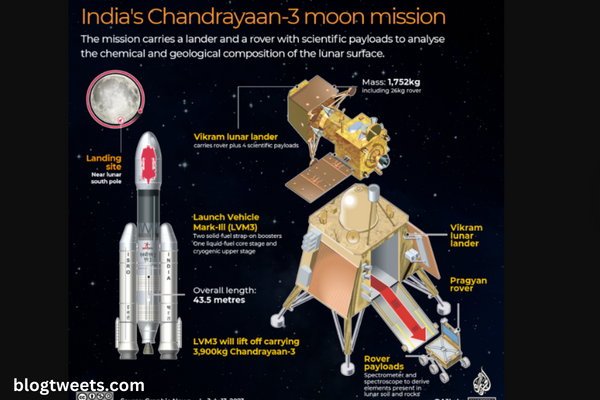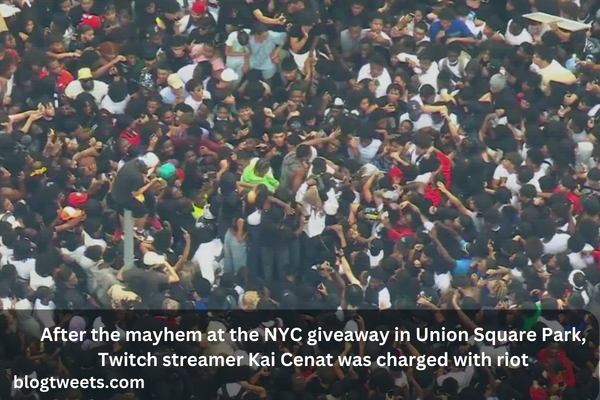Donald Trump enters a not guilty plea to the allegations relating to secret documents

Donald Trump, a former president, has entered a not guilty plea to 37 charges including alleged improper handling of secret data.
During the former president’s arraignment on Tuesday in a federal courthouse in Miami, Trump’s attorneys requested a jury trial. Todd Blanche, a lawyer for Donald Trump, pleaded not guilty to the judge.
Trump sat slumped over during the hearing with his arms crossed and a frown on his face. He remained silent.
Walt Nauta, a supporter of Trump and a co-defendant, was also taken into custody, fingerprinted, and processed. He made his initial court appearance on Tuesday, but his arraignment isn’t until June 27.
The hearing on Tuesday, which was over in around 45 minutes, included the following additional events:
Trump is not permitted to speak with Nauta about the lawsuit, according to Magistrate Judge Jonathan Goodman’s decision. The judge also instructed the prosecution to compile a list of potential witnesses with whom Trump is prohibited from speaking about the matter without legal representation.
However, the judge did not impose any travel limitations on either defendant.
The Justice Department advocated for the unconditional release of Trump and Nauta without any strings attached.
David Harbach, the prosecutor, stated that “the government does not view either defendant as a flight risk.”
Goodman thanked “the entire law enforcement community” for their efforts on Tuesday before opening the hearing.
Deputy marshals booked the former president and took digital copies of his fingerprints prior to the arraignment hearing. Trump’s mugshot wasn’t taken because of his high level of recognizability. It took roughly 10 minutes to complete the booking.
The legal risk for the 2024 GOP front-runner increases as a result of the criminal accusations in the Justice Department’s case involving secret documents. Jack Smith, a special attorney, came to the arraignment on Tuesday.
Donald Trump enters a not guilty plea to the allegations relating to secret documents.
Donald Trump, a former president, has entered a not guilty plea to 37 charges including alleged improper handling of secret data.
During the former president’s arraignment on Tuesday in a federal courthouse in Miami, Trump’s attorneys requested a jury trial. Todd Blanche, a lawyer for Donald Trump, pleaded not guilty to the judge.
Trump sat slumped over during the hearing with his arms crossed and a frown on his face. He remained silent.
Walt Nauta, a supporter of Trump and a co-defendant, was also taken into custody, fingerprinted, and processed. He made his initial court appearance on Tuesday, but his arraignment isn’t until June 27.
The hearing on Tuesday, which was over in around 45 minutes, included the following additional events:
Trump is not permitted to speak with Nauta about the lawsuit, according to Magistrate Judge Jonathan Goodman’s decision. The judge also instructed the prosecution to compile a list of potential witnesses with whom Trump is prohibited from speaking about the matter without legal representation.
However, the judge did not impose any travel limitations on either defendant.
The Justice Department advocated for the unconditional release of Trump and Nauta without any strings attached.
David Harbach, the prosecutor, stated that “the government does not view either defendant as a flight risk.”
Goodman thanked “the entire law enforcement community” for their efforts on Tuesday before opening the hearing.
Deputy marshals booked the former president and took digital copies of his fingerprints prior to the arraignment hearing. Trump’s mugshot wasn’t taken because of his high level of recognizability. It took roughly 10 minutes to complete the booking.
The legal risk for the 2024 GOP front-runner increases as a result of the criminal accusations in the Justice Department’s case involving secret documents. Jack Smith, a special attorney, came to the arraignment on Tuesday.
In the Justice Department’s investigation into the materials, Trump is accused of violating witness-tampering rules and improperly retaining information for national defence on 37 felony counts.
Visit a Cuban eatery
Following the court appearance, Trump made a surprise detour at Miami’s renowned Versailles Cuban restaurant. Inside the restaurant, Trump was greeted by scores of his supporters who he shook hands with and posed for pictures with.
Trump remarked, “Food for everyone,” as the crowd applauded.
Trump’s followers once sang him “happy birthday.” On Wednesday is Donald Trump’s birthday.
Trump was recorded stating, “Some birthday, we got a government that is out of control.”
After leaving the restaurant, Trump took a flight back to New Jersey where he made a public statement at his Bedminster club about the “fake and fabricated charges.” The former president said that he had “every right to have these documents” and that the prosecution “ought to drop this case immediately because they’re destroying our country.”
He told the gathering people, “They shouldn’t have done this.” This was an unwritten rule; unless it’s truly horrible, you just don’t. But you simply do not. However, the seal has been breached.
Before going to court earlier that day, Trump said on social media that it was “ONE OF THE SADDEST DAYS IN THE HISTORY OF OUR COUNTRY. We are a declining nation.
The hearing on Tuesday is just the beginning of what is sure to be a long, dramatic legal process, with criminal and appellate hearings that might go for years. The case has been sent to US District Judge Aileen Cannon, a Trump nominee whose last year decision to request a third-party review of an FBI search of Mar-a-Lago was roundly criticised and reversed by a conservative appeals court.
Todd Blanche and Chris Kise, solicitors, appeared on behalf of Trump during the arraignment. Uncertainty surrounds Kise’s future status, and he was absent from the Mar-a-Lago search litigation last year due to internal strife among the Trump administration.
Before Trump’s arraignment, another of his attorneys, Alina Habba, spoke outside the courthouse and described the former president as “defiant.”
A “two-tiered system of justice” was mocked by Habba, who also referred to the indictment as a “unapologetic weaponization of the criminal justice system.”
Along with the attorneys Harbach and Julie Edelstein, the Justice Department’s counterintelligence head Jay Bratt, who has so far played a significant role in the materials investigation, attended the hearing on Tuesday.
severity of the allegations
Prior to his federal indictment last week, Trump was also charged criminally by New York City’s local prosecutors for an alleged hush money plot during the 2016 campaign, in which he is charged with falsifying financial records.
The additional allegations in the DOJ papers case are significantly more serious and, if Trump is finally found guilty, carry a potential sentence of several years in prison.
Trump is charged on 31 counts of willful retention of national defence information, which is a charge regardless of whether the documents are secret or not. He is accused of making false statements as well as four counts relating to document concealing in addition to the obstruction conspiracy.
“In a case like this, obstruction and tampering help prove the main charge, that the defendant willfully engaged in the charged conduct,” said David Aaron, a former federal prosecutor in the espionage section of the DOJ’s national security division and a current senior counsel at Perkins Coie. These circumstances might also influence how a judge, jury, or the general public perceives the case and significantly impact the sentence.
what takes place next
After the hearing on Tuesday, the case will go into the legal slog of pretrial processes, which is likely to include disagreements over the evidence presented to the jury and whether the case should be dismissed completely before going to trial. The Trump campaign will have lots of chances to stall, possibly until beyond the 2024 election.
One significant x-factor in the prosecution of the case is its assignment to Cannon, who sits in Ft. Pierce, Florida, but who is one of the judges selected at random to hear cases filed in West Palm Beach, where the new indictment was brought.
Legal experts from all political perspectives were puzzled by Cannon’s handling of Trump’s complaint against the FBI’s Mar-a-Lago search last year because it looked that she went above and beyond to establish special legal rules in the former president’s favour. Last December, a group of right-leaning appellate judges, including two Trump appointees, on the 11th US Circuit Court of Appeals dissected her justification for why such a review was required.
According to Kel McClanahan, a national security attorney and adjunct professor at the George Washington University Law School, “She got so beat up by the 11th Circuit that she might be ultra-cautious.” Just put, “We don’t know.”








